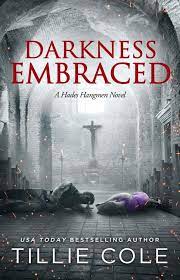Photo by Clay Banks on Unsplash
In a world where literary works are under attack, the importance of hosting book clubs cannot be overstated. These clubs serve as critical pillars of resistance and celebration of literature. Here are five compelling reasons why book clubs are more important than ever in the face of growing censorship:
-
Preserving Intellectual Freedom: Book clubs act as fortresses of intellectual freedom in an era marked by attempts to censor and ban novels. Consider the alarming statistics from the American Library Association in 2023, revealing nearly 700 attempts to ban library books within the first eight months of the year. These attempts aimed to challenge or censor a staggering 1,915 titles, marking a 20% increase compared to the same months in 2022. Book clubs play a vital role in upholding the right to access information and knowledge, ensuring that no voice is silenced.
-
Fostering Dialogue: In a time when polarizing viewpoints are on the rise, book clubs facilitate open, respectful discussions about challenging and controversial topics. This is especially crucial as censorship efforts continue to grow. The platform provided by book clubs encourages participants to think critically, engage in thoughtful conversations, and promote understanding and empathy.
-
Promoting Alternative Perspectives: Book clubs often select books from a wide range of genres, cultures, and perspectives. This diversity of voices allows readers to explore experiences different from their own. It is a powerful countermeasure to the disturbing trend of banning diverse stories, as seen in Scholastic's Book Fair reversal in 2023. After facing mounting backlash from educators and authors, Scholastic announced it would no longer separate diverse stories for school book fairs. Book clubs, meanwhile, continue to celebrate and promote inclusivity in literature.
-
Empowering Readers: Book clubs empower readers to have agency in their reading choices. Readers need opportunities to explore a wide range of books, including those that challenge their beliefs. This empowerment encourages lifelong learning and personal growth, ensuring that the pages keep turning even in the face of adversity.
-
Building Communities: In an increasingly digital world, book clubs offer a sense of belonging and connection to like-minded individuals. These communities provide emotional support and make the act of reading a shared, communal experience. In a climate where books are being banned, including a staggering 625 titles across 12 districts in Texas according to a study by Pen America, these communities play a crucial role in connecting readers and authors.

(Photo by Eugenio Mazzone)
As the freedom to read diverse books is continually challenged, book clubs stand as a beacon of hope. They foster a love for literature, encourage dialogue, empower readers, and build communities. The need for book clubs has never been greater, as they help keep the pages turning and the ideas flowing, even in the face of adversity.
Resource for Hosting Online Book Clubs: Bookum
For those looking to host online book clubs, consider using Bookum. Their Social Bookclubbing and Book Networking platform, known for "Where Bookish Conversations Happen," is dedicated to promoting a thriving reading culture and connecting readers with engaging communities and storytellers. You can find all the tools and resources you need to create and manage your book club in one centralized platform. Explore their website at www.bookumapp.com and embark on your literary journey with like-minded readers. Bookum is your go-to destination for everything book club-related.






